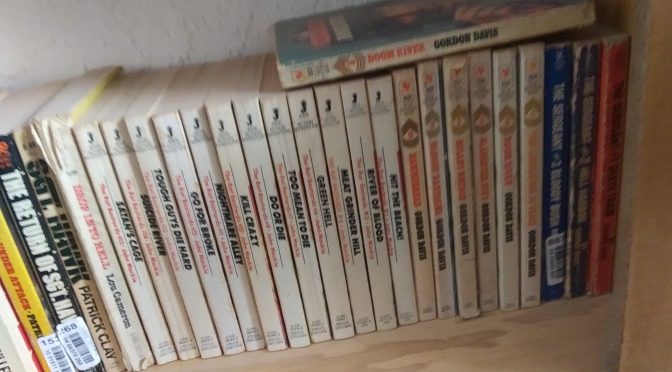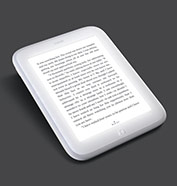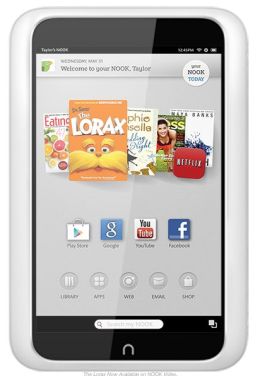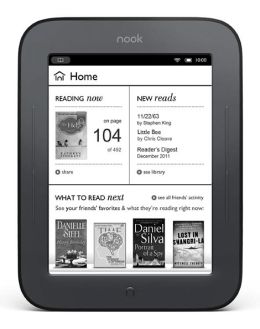It’s an honor to be able to post an e-mail interview I conducted with a legend in men’s adven ture fiction, author Len Levinson.
ture fiction, author Len Levinson.
First, a little background.
My love of reading really blossomed because of comic books, and I was superhero-crazy up until my early adolescence. I read some detective novels, historical fiction and sci-fi, but still liked comics best.
One summer I had to take a long car trip with grownups. Bored out of my mind, on one of the refueling stops I went inside the 7/11 and looked over the book rack. Something on the back cover blurb of one book caught me, and I bummed the money to buy it. The book was The Sergeant #4: The Liberation of Paris. It not only gave me something to do on the trip, it introduced me to men’s adven ture fiction and the subject of World War Two. That book, and some other things happening at roughly the same period in my life, conspired to alter my course. I became a fan of men’s adventure, especially war fiction, and also became obsessed with WWII.
ture fiction and the subject of World War Two. That book, and some other things happening at roughly the same period in my life, conspired to alter my course. I became a fan of men’s adventure, especially war fiction, and also became obsessed with WWII.
I picked up more books in the series whenever I found them, and gleaned used copies from second-hand book stores once they were out of print. I was one book shy of the entire series for a long time, but just within the last few years picked up The Sergeant #3: Bloody Bush, becoming the first one on my block to have every paperback in the series. I was still a fan once in the Army, and got a buddy hooked on the series, too.
The author name on the cover of those books was Gordon Davis. Due to my subsequent fascination with the Second World War I also discovered other men’s fiction set in that historical period, including a series by “John Mackie” called The Ratbastards. Barely even noticing author names in those years, I took the attributions at face value, though I sure did notice a similarity in the styles.
The Sergeant was Master Sgt. C.J. Mahoney—a grizzled, brutal alpha male infantry soldier slaughtering Germans all over the ETO (in between many prose-porn encounters with nurses and French women–Mahoney was a master of “game”). His usual sidekick was Corporal Cranepool—a seemingly innocent country boy who went kill-crazy in combat. Battle scenes were brutal and almost always involved some bloody bayonet duels. The perspective often zoomed out to the field generals, to orient the reader as to the strategy behind why these battles took place. This was something I appreciated more as I grew older and re-read the books.
The Ratbastards was about a reconnaissance platoon in the Pacific Theater (PTO), led by another incredibly tough non -com, John Butsko. These guys were a tough, raw cross-section of America (Butsko sometimes called them “the worst bunch of f—kups I’ve ever seen!”) who expected no quarter from the Japanese and usually gave none. Their ranks included a cowboy, a stunt man, a former bank robber, a Los Angeles gang member, a full-blooded Apache, a rich blueblood, a hobo, a religious fanatic and a New York hustling wise guy. There was occasional sex when one of the guys got lucky with a nurse or native girl, but mostly there was a lot of dirty, bloody jungle combat…also with a lot of bayonet action.
-com, John Butsko. These guys were a tough, raw cross-section of America (Butsko sometimes called them “the worst bunch of f—kups I’ve ever seen!”) who expected no quarter from the Japanese and usually gave none. Their ranks included a cowboy, a stunt man, a former bank robber, a Los Angeles gang member, a full-blooded Apache, a rich blueblood, a hobo, a religious fanatic and a New York hustling wise guy. There was occasional sex when one of the guys got lucky with a nurse or native girl, but mostly there was a lot of dirty, bloody jungle combat…also with a lot of bayonet action.
(I have most of the paperbacks in this series, though it was longer.)
My suspicions grew over the years that these two series were written by the same author. And eventually that proved to be the case. Furthermore, thanks to the Internet, I actually came into contact with this master of men’s fiction.
Len’s been very gracious in granting this Q&A to a fan of his work.
HANK: Having read your essay previously, I understand you wrote The Sergeant first, then The Ratbastards. And I’ve recently read your novella about the suicide platoon during the Battle of the Bulge. So being fairly well-versed in the 
 Tell me about these guys—were Mahoney and Butsko based on any specific men in particular, or were they amalgams of various war veterans you crossed paths with?
Tell me about these guys—were Mahoney and Butsko based on any specific men in particular, or were they amalgams of various war veterans you crossed paths with?
LEN: It’s difficult to say with certainty where characters come from, because writing fiction is a mystery or a “spooky art” according to Norman Mailer. As far as I know, Mazursky in DOOM PLATOON, Mahoney in THE SERGEANT and Butsko in THE RAT BASTARDS were all similar and based on sergeants I met in the Army, but perhaps mostly based on an old friend named Mike Nichols, who was born and raised in NYC’s Hell’s Kitchen, served as a soldier in Europe during World War II, served five years in a federal penitentiary for drug smuggling, and was a very tough guy. He exerted an enormous influence on me, for better or worse, because he definitely was no angel, but he died in 1993 and I still miss him very much. He was a peculiar mixture of brutality and gentleness which somehow seeped into the characters of the above-mentioned three sergeants. He also was one of the best conversationalists and storytellers I’ve ever met, and also introduced me to my first wife.
 HANK: Now this is like finding buried treasure! First let me say that I really noticed this mixture of brutality and gentleness in Sgt. Butsko. He’s a bad mamma-jamma nobody in their right mind wants to cross. Yet I remember in Too Mean to Die I was prepared to read about a horrendous barroom brawl when he and a marine laid claim to the same stool, but he displays rare restraint and makes friends instead (later on he does take another marine apart, but only after being pushed too far). Then in Down and Dirty he is prepared to castrate Bannon for fooling around with a native girl, but suddenly shows almost paternal affection for him instead. Rather than striking me as out-of-character, it made Butsko all the more real to me…and perhaps more sympathetic than Mahoney.
HANK: Now this is like finding buried treasure! First let me say that I really noticed this mixture of brutality and gentleness in Sgt. Butsko. He’s a bad mamma-jamma nobody in their right mind wants to cross. Yet I remember in Too Mean to Die I was prepared to read about a horrendous barroom brawl when he and a marine laid claim to the same stool, but he displays rare restraint and makes friends instead (later on he does take another marine apart, but only after being pushed too far). Then in Down and Dirty he is prepared to castrate Bannon for fooling around with a native girl, but suddenly shows almost paternal affection for him instead. Rather than striking me as out-of-character, it made Butsko all the more real to me…and perhaps more sympathetic than Mahoney.
But I’d like to know more about Mike Nichols. Was he raised Catholic like Mahoney? (I can certainly see Mahoney smuggling drugs, if forced out of the Army and other circumstances conspired.) I’m also wondering if the stories he told included any amorous exploits during wartime in Europe, and if that influenced your depiction of Mahoney’s prolific “alpha game.”
LEN: As near as I can recall, Mike was raised in Hell’s Kitchen by a single mother. I don’t remember if she was divorced, or her husband deserted, or she was an unwed mother. She was very left wing and so was Mike, who also was a militant atheist. I often argued religion with him, because as mentioned earlier, I’m a mild-mannered religious fanatic, although perhaps not always so mild-mannered. In the context of NYC, atheism was very common and I the oddball.
Mike was very attractive to women and had many love affairs before marrying Maggie Gethman, who became the first woman managing editor of FIELD AND STREAM magazine. Mike looked sort of like that old time movie star Victor Mature combined with John Garfield.
Mike had been very influenced by Nietzche, and thought that conventional morality was bullshit. He definitely had the criminal mentality mixed with generosity and occasional saintliness. I should add that he deserted from his unit in WWII, became a black marketeer, was locked in a stockade and busted out. I don’t know what kind of discharge he got. After mustering out he went to Columbia University for a few years, hung out with Jack Kerouac, Allen Ginsberg and that crowd, and one of his many girlfriends was the real-life character on whom the fictional character Mardou was based in Kerouac’s THE SUBTERRANEANS.
Once Mike said to me: “You’re the craziest person I never met in my life, but you seem normal.” I took this as a great compliment because he’d travelled extensively and had met many crazy people. In fact, he was quite crazy himself.
Mazursky, Mahoney and Butsko all had elements of Mike, but weren’t totally based on him. I created characters out of bits and pieces of various real people and invented a lot also. Writing definitely is a spooky art because it’s difficult to pin down the source of everything. Some of me is in those sergeants also, and probably in every other character I created.
HANK: Just a comment here about all your main characters I’ve encountered: I think it’s their fatalism that appeals so much to me. That’s what helped me relate to Brockman in Operation Perfida right away…but possibly why others may not like or understand him. When I think about it, probably all my own protagonists are fatalistic too. Just a hunch that maybe this was one of your friend’s attributes that you translated to the page?
LEN: Yes, Mike could be considered quite fatalistic and cynical. But so can I. Mike and I would insist we’re realistic, trying to live without illusions. I should point out that Mike didn’t seem depressed or unhappy at all. He was a true party animal, and he and his wife Maggie were constantly inviting me to parties at his apartment, or to parties in other people’s apartments. Once he invited me to a party that lasted three days, but I was only there for around 10 hours.
HANK: There are differences in Bannon (a cowboy from Texas) and Cranepool (a farm boy from Iowa); chiefly, Bannon is not nearly as innocent to begin with…but there’s a whole lot of similarities, too. Did these two hatch from the same egg?
LEN: I don’t see Bannon and Cranepool as similar at all. Cranepool was Mahoney’s sidekick but Bannon was no sidekick and had real leadership potential.
HANK: That is a good point. Bannon was certainly more mature, and was a capable leader. Cranepool was a natural follower who idolized Mahoney.
The Sergeant was usually a one man show, though occasionally Corporal Cranepool shared Mahoney’s spotlight. The Ratbastards (as the name suggests) was more like an ensemble. There was Homer Gladly, Sam Longtree, Frankie LaBarbara, the Reverend Billy Jones, Craig Delane, Shaw, Gomez… though Butsko and Bannon were certainly your “go-to” guys. What made you decide to change your approach to writing about the war between these two series in regards to number of continuing characters?
LEN: You’re right: THE SERGEANT was mostly a one-man show while THE RAT BASTARDS was an ensemble effort. After completing THE SERGEANT, I didn’t want to take the same approach with THE RAT BASTARDS, because that would be boring. So I decided to develop more characters and have some fun with their interaction. But Butsko was the main man. But the way, I named him after an old college friend of mine named Butsko from Duquesne, Pennsylvania.
HANK: I can assure you that The Sergeant was FAR from boring. Every so often I go back and read them again, because each one was such a fun ride. But the interaction between the Ratbastards was certainly fun, as well. It’s authentic and hilarious at the same time.
LEN: No, I didn’t mean to say that I thought THE SERGEANT was boring. I thought it might be boring for me to write another series centered around one sergeant. So I threw in more characters and came up with THE RAT BASTARDS, which was enormously enjoyable to write.
HANK: Back to The Sergeant for a moment. Mahoney starts out on an OSS-type mission, detached from the Rangers in Death Train. In Hell Harbor he rejoins the Rangers, but for the bulk of the series he is a plain ol’ straight leg dogface. Did you always intend to have this “demotion” take place? If so, why? If not, what made you steer him in that direction?
LEN: I wrote THE SERGEANT for Walter Zacharius, president of Zebra Books, who’d be
HANK: As an old soldier myself now, I’m curious why you always have your GI characters fasten their grenades to their lapels. Was there no place on a GI’s web gear to keep grenades back in the WWII/Korea days?
LEN: When I was in the Army, web gear consisted of the same cartridge belts as WWII soldiers. These web belts didn’t have special fittings for grenades, as I recall. Fastening grenades to clothing or dropping them in pockets was probably the common practice. I was in the Army 1954-1957 and never in combat.
HANK: I took the author names at face value when I was a kid, 
LEN: Thanks for the compliment. Perhaps I’m a warped genius but definitely not a full-blown genius. Joe Kenney on the GLORIOUS TRASH blog called me a “trash genius”. Since childhood, I’ve always had a very vivid imagination, perhaps because I often was alone reading comic books. When I was in the Army, I regularly imagined bloody scenarios, and wondered how I’d respond to real combat. Everything I am as a writer, and everything I’ve written, came from my peculiar imagination influenced by the real world. I never could’ve been a sci-fi writer, although I’ve read and enjoyed sci-fi.
HANK: What comics did you read? (Batman and Spiderman were my favorites, but I liked a lot more than just those. And after reading my first Gordon Davis novel, I began buying Sgt. Rock.)
LEN: I was born in 1935 and started reading comic books when I was six years old in the first grade. That was 1941, back in the so-called Golden Age of Comics. My favorites were Batman, Captain Marvel, Superman, Green Lantern, the Flash, Submariner, The Heap, and a comic called, I think, CRIME DOES NOT PAY, about lurid true crime stories concerning bloody murders and such. I also loved a comic book series called PICTURE STORIES FROM THE BIBLE, which was the Old Testament, King James Version, as a series of comic books.
HANK: I’m finding that our childhoods were not terribly different, though we were separated by generations and geography.
The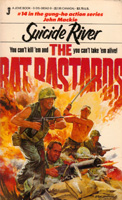 Reverend Billy Jones is a character who I didn’t like much at first. Seems to me that when you first began the Ratbastards series he was the typical religious-right stereotype (anti-Semitic bigot, etc.). But later on you allowed him to become more sympathetic, I thought. In Suicide River, Victor Yablonka (of the Recon Platoon) grudgingly accepts a Gideon Bible from Billy Jones, in a scene I found surprisingly touching. Yablonka puts it in his breast pocket and that Bible winds up stopping a bullet, saving his life. Then, when I finally completed my Sergeant collection with Bloody Bush, I read about the same thing happening to Mahoney. So you plagiarized yourself. First off, did you ever sue yourself over copyright infringement (and if so, who won)? Secondly, what was it about this idea you liked so much to use twice?
Reverend Billy Jones is a character who I didn’t like much at first. Seems to me that when you first began the Ratbastards series he was the typical religious-right stereotype (anti-Semitic bigot, etc.). But later on you allowed him to become more sympathetic, I thought. In Suicide River, Victor Yablonka (of the Recon Platoon) grudgingly accepts a Gideon Bible from Billy Jones, in a scene I found surprisingly touching. Yablonka puts it in his breast pocket and that Bible winds up stopping a bullet, saving his life. Then, when I finally completed my Sergeant collection with Bloody Bush, I read about the same thing happening to Mahoney. So you plagiarized yourself. First off, did you ever sue yourself over copyright infringement (and if so, who won)? Secondly, what was it about this idea you liked so much to use twice?
LEN: I wasn’t plagiarizing myself. I was only reflecting reality. During World Word II, true stories were told about Bibles stopping bullets, so I tossed a few of these incidents into my books, because evidently they actually happened, and as a mild-mannered religious fanatic, I kind of liked the idea.
HANK: Now that is fascinating. BTW, if you care to, I ‘d like to know just a little more about your religious fanatacism. For some reason I thought you were Jewish, but then outside the Hasidic it’s hard to think of any examples of Judaism that could be considered fanatic. Certainly this topic doesn’t have to be made public if you prefer not.
LEN: Both my parents were Jewish, born in the U.S.A. My mother died when I was four. My father never arranged for any Jewish education or Bar-Mitzvah, which made me very unusual among Jews. I grew up in a Catholic and Protestant working-class neighborhood in New Bedford, Massachusetts. Some Sundays I went to Catholic church with my Catholic friends. Other Sundays I went to an Episcopalian church with my Episcopalian friends. I never went to any synagogue. My father had contempt for religion although he claimed to believe in a “supreme being”. I was very influenced by the comic book series mentioned above, PICTURE STORIES FROM THE BIBLE. Around 16 I fell under the influence of so-called “progressive” thinking and became an atheist. Then I had a religious experience during an acid trip when I was around 28, which turned me into a mild-mannered religious fanatic. I became interested in Eastern religions, converted to Roman Catholic in 1979, dropped out in 2006, and now practice my own religion which I call Transcendental Realism, an amalgamation of everything that seems true in all the religions I studied and practiced.
HANK: We are roughly halfway through the Q & A. I’m going to pinch it for now and come back with Part 2 next time, in which Len answers questions I have about specific scenes in these books, we discuss General George S. Patton, men’s fiction/action adventure, author cameos and some other cool stuff.

